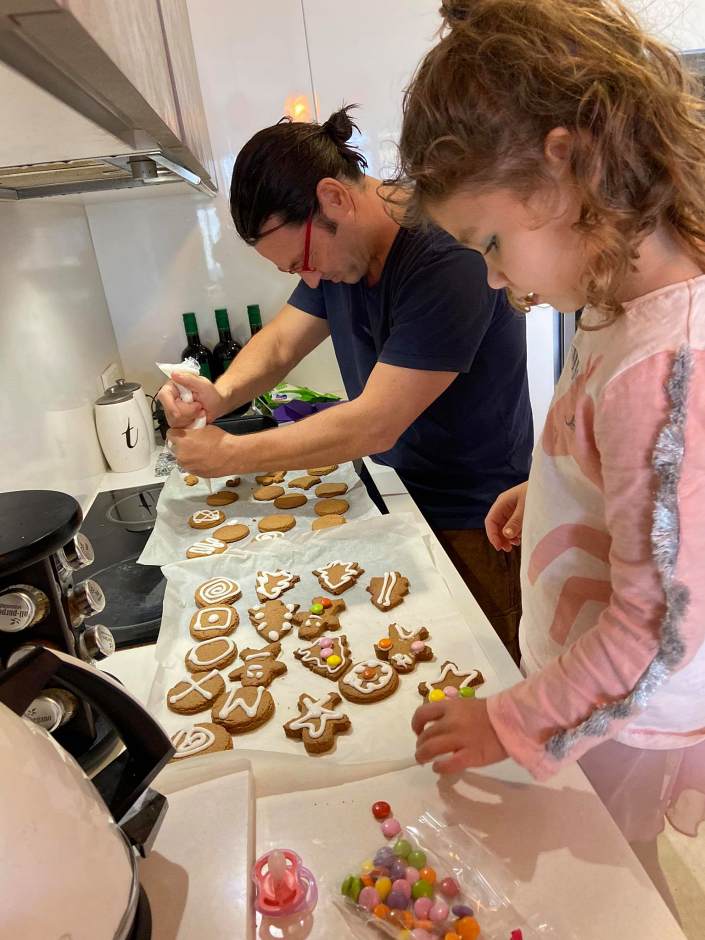Are you losing your cool? Can’t stand living all these hours with your family members? What a strange new world we are living in when a Google search for “love in the time of coronavirus” returns over one million results! Scroll through, and you’ll find endless tales of love during COVID whether it’s getting together or breaking apart (divorces in China spiked following the end of the lockdown).
Most relationships, however, fall somewhere in the middle of that spectrum, and if you’re simultaneously feeling grateful for your partner’s company and also ready to jet off on a month-long solo vacation after all of this is over, you are not alone. The stress of self-isolation together, combined with heightened financial concerns, health worries, and general distress over the state of the world, can be a recipe for tension. We hope these tips will support the health of your relationship during the pandemic—and maybe even help you come out the other side with a stronger bond than before.
When we model peaceful and loving relationships, our children feel more secure and loved. Positive language, active listening, and empathy help maintain a peaceful and happy family environment these under stressful times Children or teenagers asking for things can cause arguments. But we can do things that help cope with financial stress.
We are models for our kids
How we talk and behave in front of others is a big influence on how they behave too!
Try to talk kindly to everyone in the family, adults and children
Bad communication between adults in the household can have a negative impact on our children
The more we practice modeling peaceful, loving relationships for our children the more secure and loved they will feel
Use positive language. It works!
Tell others what you want them to do instead of what you don’t want them to do: Instead of “Stop shouting,” try “Please speak more quietly”
Praise makes others feel appreciated and good about themselves. Simple words like, “Thank you for clearing the dinner,” or “Thank you for watching the baby” can make a big difference
Nice things to do together as a family
Let each family member take turns to choose a whole-family activity each day
Find ways to spend quality time with your partner and other adults in your home, too!
Be an empathetic active listener
Listen to others when they are talking with you
Be open and show them that you hear what they are saying
It can help to even summarise what you have heard before responding: “What I hear you saying is…”
Share the load
Looking after children and other family members is difficult, but it’s much easier when responsibilities are shared
Try to share household chores, childcare, and other tasks equally amongst family members
Create a schedule for time “on” and time “off” with other adults in your household
It is okay to ask for help when you are feeling tired or stressed so that you can take a break
Feeling stressed or angry?
Give yourself a 10-second pause. Breathe in and out slowly five times. Then try to respond in a calmer way. Millions of parents say this helps – A LOT
Call a truce when you can see arguments building up, and go into another room or outside if you can
Make time for self-care
. As the saying goes, you can’t pour from an empty cup. Especially now, it’s crucial to carve out time for your own mental health. Even if you feel like there are 100 other things you “should” be doing, build at least 30 minutes into each day for a hot bath, a solo run, a good read, or a Zoom call with a friend. You’ll be able to approach your partner with more patience and less resentment afterward.
Do more little things
Little things can do a lot to help a relationship. Bring in a bundle of spring flowers picked in the park, wash the dishes, fold the laundry, offer to make dinner… do things that aren’t typically “your” tasks. Your regular routine is already turned upside down right now in a big way, so all the more reason to break out of your comfort zone in small ways.
Practice gratitude, especially with your partner
It may sound trite, but in challenging times, remembering what we have to be grateful for may ease tension and offer a dose of perspective. Have a Gratitude Jar you use to write 3 things that you are grateful for each day and re-visit them regularly. Especially talk about what you appreciate in each other. Even if you know 100% how much you appreciate them, they may not take it as a given, and vocalizing it on a regular basis can be a huge help. Particularly in a situation where we’re all working at 110% to preserve a semblance of normalcy, it’s crucial to make sure your partner doesn’t feel their efforts are being taken for granted.
Laugh more
Share funny jokes, cartoons, and memes, and reflect on funny times together. Don’t feel like you’re not allowed to laugh because of everything going on in the world right now. Laughter is proven to relieve stress, and a little levity can go a long way in times like these.
Watch things together
Co-viewing creates a shared history that helps couples and families bond. The internet is overflowing with recommendations for quarantine viewing right now, so whether you want to escape into an alternate universe or chuckle at a sitcom, there’s something streaming out there for you.
Create schedules that meet your needs.
That might mean you waking up an hour early to get in extra work time before your kids wake up, or designating an hour-long block during the afternoon for each of you to get out of the house and have some alone time. If your day is going smoothly and you’ve created strategies for avoiding stressors, you’re both less likely to take out negative energy on each other.
Work out a division of domestic labor that feels fair.
If you’re in a situation where one parent is working full-time from home and one is not, the non-working parent can be implicitly expected to pick up the slack in terms of chores and newfound round-the-clock childcare duties, creating additional strain. In this case, as in all cases, communication is key. Voice your needs while trying not to have preconceived expectations, and look for compromises: Perhaps one parent can care for baby in the morning before their workday starts, allowing the other parent to sleep in.
Maintaining work-life balance is more difficult when working from home, so it’s important for working parents to establish defined start and end times for their job duties—as well as lunch breaks if possible—such that non-working parents get the chance for some down-time, too
I hope these tips have helped you today!
As I share these pictures of two vibrant winter looks, I thought it would be more beneficial to talk about this subject of harmony rather than just talking about how I styled the outfits.
For those interested to know how to shop for these looks, to feel good and stay mentally positive here are the details of how I did put these looks together.
Sending much love and positivity your way
Grazielle





















